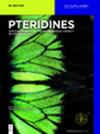Association of expression and genotypes of thymidylate synthase in non-small cell lung cancer patients with different clinicopathological characteristics
IF 0.9
4区 医学
Q4 BIOCHEMISTRY & MOLECULAR BIOLOGY
引用次数: 0
Abstract
Abstract Objective To explore the expression and genotypes of thymidylate synthase (TS) in patients of non-small cell lung cancer (NSCLC) with different clinicopathological characteristics. Methods The expression profiles of TS were examined by immunohistochemical staining and quantitative real-time reverse transcription polymerase chain reaction (qRT-PCR) in 160 patients with NSCLC. Polymerase chain reaction-restriction fragment length polymorphism (PCR-RFLP) was used to detect TS-5′UTR tandem repeats, G/C nucleotide polymorphisms, and 3′UTR 6 bp deletion/insertion polymorphisms. The relationships between clinicopathological characteristics and TS expression or genotypes were investigated through χ 2 test. Kaplan–Meier survival analysis was used to analyze the association between TS expression and overall survival (OS) and disease-free survival (DFS) of NSCLC patients. Results The expression levels of TS protein and TS gene in NSCLC tissues were significantly higher than that in paracancerous tissues (P < 0.05). Furthermore, high expression of TS protein and 5′UTR polymorphism of TS gene showed significant correlation with differentiation, TNM stage, and lymph node metastases. The frequency of −6 bp/−6 bp genotypes in patients with NSCLC was 43.13% (69/160), which was higher than others. In addition, the rate of TS protein overexpression in NSCLC patients with 3R/3R was 79.79%, which was higher than others. Interestingly, high expression of TS protein predicted shorter DFS and OS and lower 3-year DFS rate and 3-year OS rate. Conclusions The expression levels of TS in NSCLC were significantly increased and may help to predict the prognosis of NSCLC, and high expression of TS protein and 5′UTR polymorphism of TS gene were significantly related to differentiation, TNM stage, and lymph node metastases.不同临床病理特征的非小细胞肺癌癌症患者胸苷酸合酶表达及基因型的相关性
摘要目的探讨胸腺苷酸合成酶(TS)在不同临床病理特征的非小细胞肺癌(NSCLC)患者中的表达及基因型。方法采用免疫组织化学染色和实时定量逆转录聚合酶链反应(qRT-PCR)检测160例非小细胞肺癌患者TS的表达谱。采用聚合酶链反应-限制性片段长度多态性(PCR-RFLP)检测TS-5'UTR串联重复序列、G/C核苷酸多态性和3'UTR 6bp缺失/插入多态性。通过χ 2检验探讨临床病理特征与TS表达或基因型的关系。采用Kaplan-Meier生存分析分析TS表达与NSCLC患者总生存期(OS)和无病生存期(DFS)的关系。结果TS蛋白及TS基因在NSCLC组织中的表达水平显著高于癌旁组织(P < 0.05)。此外,TS蛋白的高表达和TS基因5′utr多态性与分化、TNM分期和淋巴结转移有显著相关性。NSCLC患者中−6 bp/−6 bp基因型的频率为43.13%(69/160),高于其他类型。此外,3R/3R NSCLC患者中TS蛋白过表达率为79.79%,高于其他患者。有趣的是,TS蛋白的高表达预示着更短的DFS和OS,更低的3年DFS率和3年OS率。结论TS在NSCLC中的表达水平显著升高,可能有助于预测NSCLC的预后,TS蛋白高表达及TS基因5′utr多态性与NSCLC的分化、TNM分期及淋巴结转移有显著关系。
本文章由计算机程序翻译,如有差异,请以英文原文为准。
求助全文
约1分钟内获得全文
求助全文
来源期刊

Pteridines
生物-生化与分子生物学
CiteScore
1.20
自引率
25.00%
发文量
6
审稿时长
>12 weeks
期刊介绍:
Pteridines is an open acess international quarterly journal dealing with all aspects of pteridine research. Pteridines are heterocyclic fused ring compounds involved in a wide range of biological functions from the color on butterfly wings to cofactors in enzyme catalysis to essential vitamins. Of the pteridines, 5,6,7,8-tetrahydrobiopterin is the necessary cofactor of several aromatic amino acid monoxygenases, the nitric oxide synthases and glyceryl ether monoxygenase (GEMO). Neopterin plays an essential role in the immune system and is an important biomarker in laboratory medicine for diseases such as HIV, cardiovascular disease, malignant tumors, among others.
Topics:
-Neopterin, dihydroneopterin, monapterin-
Biopterin, tetrahydrobiopterin-
Folates, antifolates, riboflavin-
Phenylalanine, tyrosine, phenylketonuria, serotonin, adrenalin, noradrenalin, L-DOPA, dopamine, related biogenic amines-
Phenylalanine hydroxylase, tyrosine hydroxylase, tryptophan hydroxylase, nitric oxide synthases (iNOS), alkylglycerol monooxygenase (AGMO), dihydropterin reductase, sepiapterin reductase-
Homocysteine, mediators of inflammation, redox systems, iron.
 求助内容:
求助内容: 应助结果提醒方式:
应助结果提醒方式:


